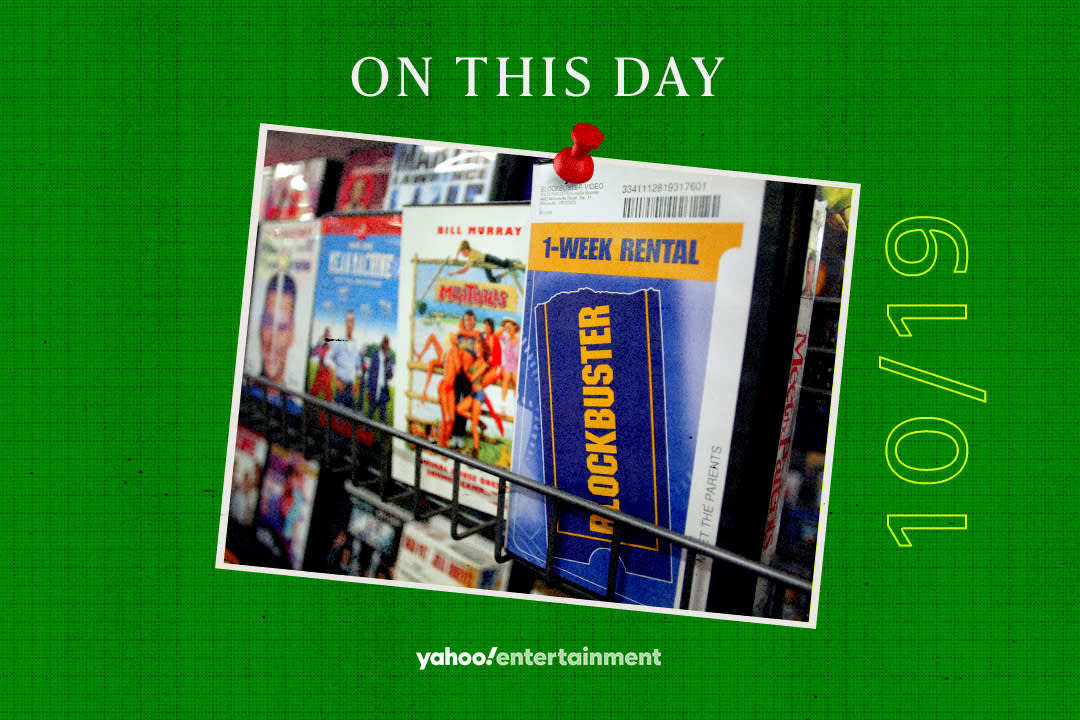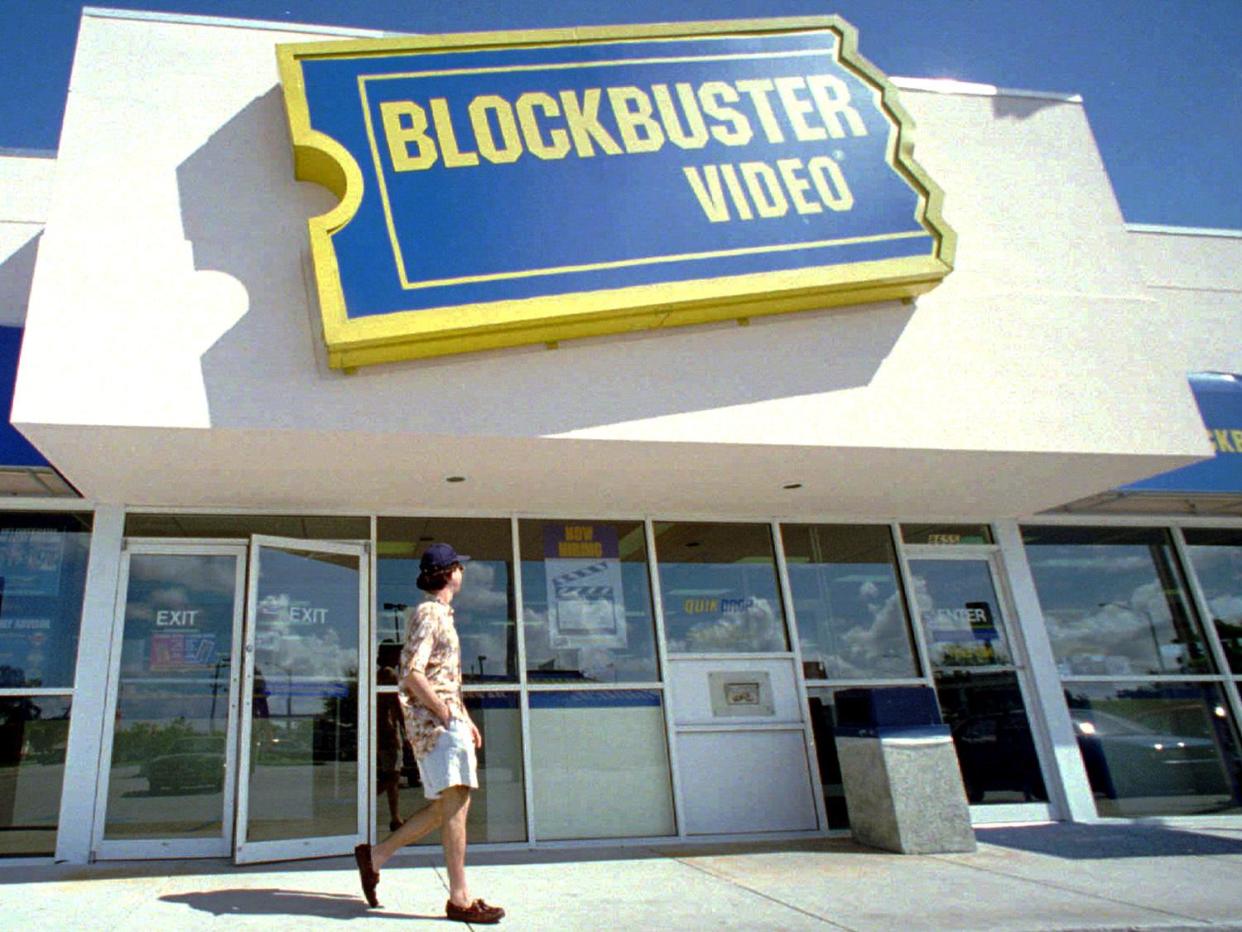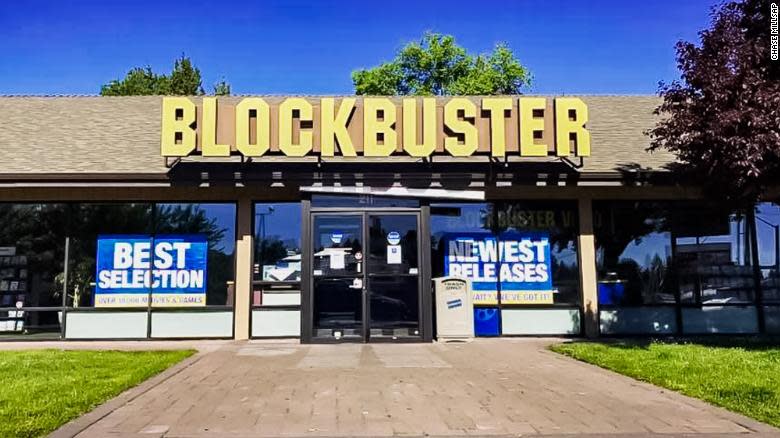Movie lovers made it their first Blockbuster night on this day in 1985

On This Day: Oct. 19, 1985
The Happening
Wow... what a difference 38 years makes. If you were in the Dallas area on Oct. 19, 1985, you could have been among the very first movie lovers to make it a Blockbuster night. With the great VHS vs. Betamax war largely having been decided in favor of VHS, the U.S. home entertainment market was primed to take off.
And Blockbuster Video founder David Cook was there to catch the wave. The Texas entrepreneur had previously washed out of the software business, and it was his wife, Sandy, who convinced him that a video store franchise could be the ticket to fame and fortune — provided that it offered the same visual razzle-dazzle of a major Hollywood film franchise.
The customers that walked into Cook's flagship Blockbuster Video on Oct. 19 would certainly have been razzled and dazzled. Recognizing that size did matter, Cook had assembled a collection of 8,000 video tapes, all of which were displayed on row after row of wide shelves, grouped by genre. Due to the still-high cost of VHS tapes — each one could retail for upwards of $70 at the time — most stores kept their inventory small and the tapes themselves behind the counter so they couldn't get lost or stolen.
But at Blockbuster, customers were able to pluck a tape of, say, The Terminator or Code of Silence (or both!) directly off the shelf and carry it up to the counter, prized Blockbuster card in hand. There a VHS jockey in a powder-blue shirt — the Blockbuster Video uniform — could scan it via a computerized checkout process that took advantage of Cook's software experience. It was easy, efficient and modern, like a freshly painted multiplex instead of the neighborhood movie house with all the accompanying wear and tear.
A vintage mid-'80s Blockbuster ad summed the store's pitch up best: "Imagine the perfect video store... over 10,000 videos, three-evening rentals so no rush, no hassle, fast checkout, 24-hour quick drop return, open late every night. The perfect video store is popping up all over the country. There's one near you."
What Happened Next
That button on that ad was both a promise... and a warning. Cook opened three more Dallas-area stores after his flagship Blockbuster enjoyed a successful first year. But his plans to underwrite further expansion by going public hit a roadblock when a newspaper article resurfaced details of his less-than-successful software career. After absorbing $3.2 million in losses, Cook offloaded Blockbuster Video to a group of investors with ties to the trash giant Waste Management Inc. The Blockbuster founder walked away from his creation in February 1987 with $18.5 million to bank for future rentals and late fees.

Meanwhile, the Blockbuster Video universe experienced a Marvel Cinematic Universe-style expansion over the next few years, as the new owners opened up a plethora of stores from coast to coast, and also swallowed up existing video store chains that were retrofitted in Blockbuster blue. By 1990, the chain boasted over than 1,000 stores in the U.S. alone, and that number climbed to a whopping 9,000 worldwide a decade later.
Blockbuster-mania hit its zenith in the '90s and the early aughts, as VHS tapes gave way to DVDs and a whole new generation of film geeks — including yours truly — graduated from just renting Scorsese and Kubrick films (okay, let's be honest: Stallone and Van Damme) to stepping behind the counter and putting that employee discount towards used DVDs and jumbo Twizzlers packs.
Now owned by corporate content giant Viacom, the store became a pop culture staple, popping up in movies as diverse as Arnold Schwarzenegger's Last Action Hero and Ethan Hawke's Hamlet, or on MTV for a guided tour conducted by late 8 Mile star Brittany Murphy. Blockbuster even launched its own awards show, which aired on primetime network television from 1995 to 2001 and scored such celebrity guests as Jim Carrey and Reese Witherspoon.
But everything that expands must contract. A series of bad business decisions and behind the scenes bickering culminated in a 2010 bankruptcy filing. It didn't help that Blockbuster had essentially created its replacement: in 1997, a card-carrying Blockbuster customer named Reed Hastings unhappily forked over a $40 late fee fine for his Apollo 13 rental and decided to found a DVD-by-mail company called Netflix. Blockbuster's owners even had the chance to purchase Netflix for a mere $50 million in 2000, but literally laughed their rivals out of the room. (After Netflix was ascendent, Blockbuster attempted to launch its own online DVD rental service that flopped miserably.)
David Cook's "perfect video store" ended up getting sold for scraps in 2011, with Dish Network paying $234 million in an auction for the franchise's remaining assets. The satellite provider spent the next two years shutting off the franchise's lights until the last Blockbuster movie was rented on Nov. 12, 2013. The film? This Is the End — a choice that delighted the the movie's co-director, Seth Rogen.
The last movie ever rented from a blockbuster was this is the end. In high school I would go hang out at blockbuster every day.
— Seth Rogen (@Sethrogen) November 11, 2013
Where We Are Now
In the end, there can be only one Blockbuster... and it's located in Bend, Ore. Even after Dish Network put Blockbuster to bed, a dwindling number of individual stores continued to pay the company a license fee to use the name. By 2020, the Bend location was the last one standing and the store got its close-up in the 2020 documentary The Last Blockbuster.

Speaking with Yahoo Entertainment that year, manager Sandi Harding said that her store still attracts customers from all over the world who can't resist the siren song of that blue-and-yellow sign. "They were coming there for the nostalgia, but they also wanted to say hello, and tell us what Blockbuster meant to them," Harding marveled, adding that the locals are avid renters as well. "The 100,000 people we have in Bend ... continue to support us like they always have. We've seen so many people coming back in wanting to rent movies, and wanting to have that experience that they did back in the '90s."
But even the Bend store might face an inventory problem. Increasingly, the major Hollywood studios are bypassing the physical media market in favor of making their movies available on streaming services and digital video outlets. The slowdown in physical media demand is one of the reasons behind Netflix's abandonment of its DVD-by-mail business and Best Buy's recent decision to stop stocking DVDs and Blu-rays — a move that could further threaten what few video stores remain.
Funnily enough, Netflix is now getting into the brick-and-mortar game, recently unveiling plans to open a slew of stores that feature live entertainment and dining based on their most-watched shows and movies. While Blu-rays don't appear to be on the menu, the ghost of Blockbuster Video couldn't resist taking to social media to offer its younger sibling some advice.
Oh boy... Should we tell @netflix how this ends?https://t.co/TtrG4gmvxZ
— Blockbuster (@blockbuster) October 16, 2023
Now excuse use while we go microwave some popcorn and see how this all plays out.
